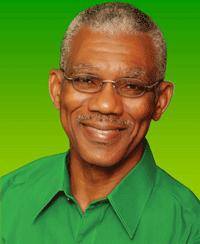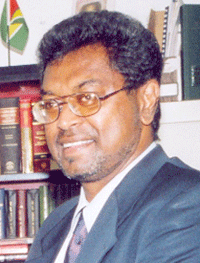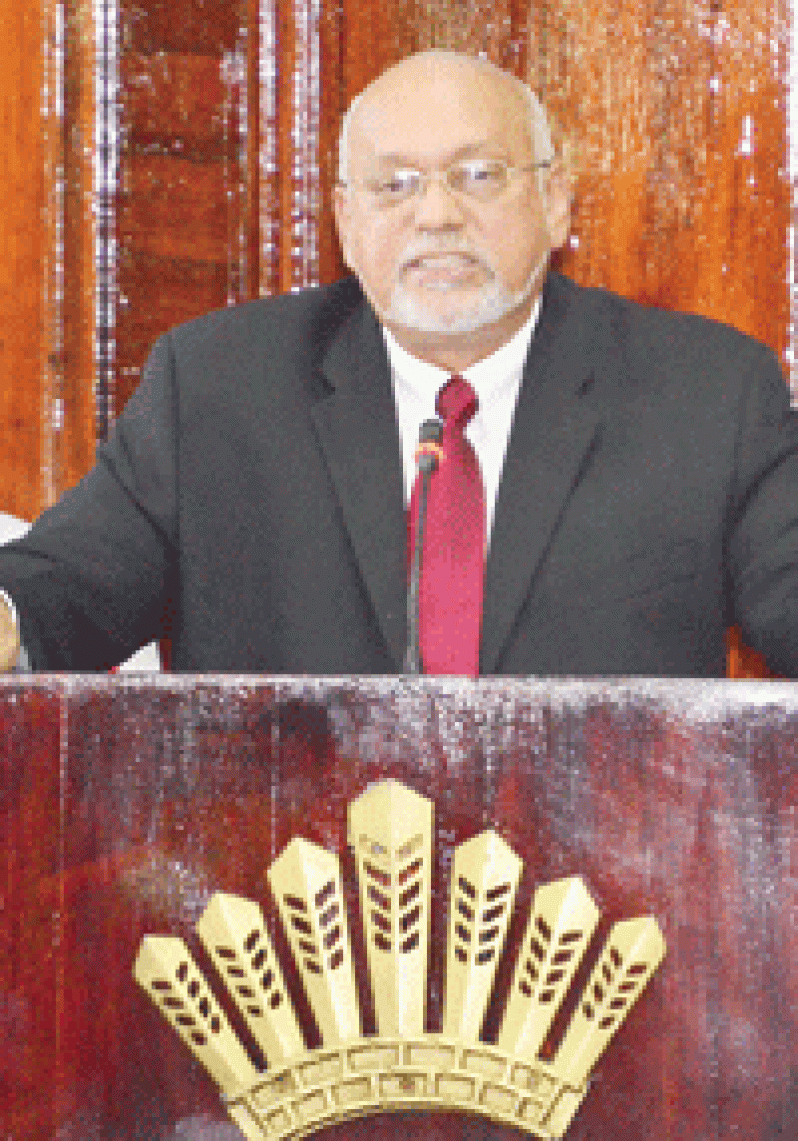AMID the continuing verbal joustings between the Guyana Government and parliamentary opposition, a significant factor may have escaped even those Guyanese, across political boundaries, who are rightly anxious for a peaceful, overdue resolution to the Linden crisis situation now almost a month old. The administration of President Donald Ramotar, the Private Sector Commission (PSC) and even elements within A Partnership for National
 |
 |
 |
 |
Unity(APNU) seem keen on finding a resolution, to judge from varying statements as reported in the local media.
In contrast, there appears to be a penchant for confrontation by elements within the leadership structure of the minority Alliance For Change (AFC) and also the Region 10 Council. The AFC’s own narrow politicking is contributing to an apparent competitive spirit within the combined parliamentary opposition which is providing fuel for the ‘flames’ burning in Linden.
When the People’s National Congress Reform (PNCR) found it necessary last Friday to release a media statement that condemned “all violence” in Linden to also expediently include the government and security forces, it may have unwittingly revealed its own current problems to exercise a required quality of leadership in a crisis situation in the bauxite mining town, whose residents have been among its staunchest supporters.
The harsh political reality is that after the results of last November 28 general and regional elections, the PNCR now faces the dilemma of having to compete with the AFC for political loyalty among Lindeners. AFC activists—aided by sensational private radio talk shows-have been quite active on the ground in stirring the ‘political pot’ in Linden before and after the tragedies of July 18.
And this is being dramatised in the dangerous misrepresentations of the proposed marginal hike in residential electricity tariffs designed to eventually achieve equalisation with consumers in the rest of Guyana.
It was, after all, the AFC’s political taunts, directed at APNU—its parliamentary ally—which had resulted in a pathetic somersault by Opposition Leader David Granger on the agreement reached with President Ramotar’s administration for the phased introduction of a new structure in electricity tariffs to help in ending a subsidisation programme for Lindeners that had cost the national treasury some GUY$37Billion over the past six years.
Spoiling Lindeners?
If, in pointing to the TT$3.03Billion subsidy on fuel for Trinidadian consumers for nine months last year, the country’s Energy Minister could have warned about the high cost of “spoiling” that nation’s fuel consumers, then surely the political opposition in Guyana cannot pretend that continuation of billions of dollars in annual subsidies for ONE community in this nation is also more than “spoiling Lindeners”—at the expense of their fellow citizens, across ethnic and political affiliations.
With Granger installed as new PNCR leader at the party’s congress where former leader Robert Corbin had demonstrated a moral compulsion to warn against “the wild men among us”, that party opted to appeal in a press statement last Friday for “restraint” on all sides in the quest for a “negotiated solution”
Except for a variation in language, it was a plea that reflected, though by no means as forcefully, as the earlier positions expressed by the government and, differently but consistently, by the Private Sector Commission—in contrast to flip-flops from the Region 10 Council’s chairman, Sharma Solomon, who seems unable to provide effective leadership.
This apparent political weakness could be assessed by his changing positions and conflicting statements prior to and after “consultation” talks with President Ramotar and his lead advisers on the Linden crisis.
Solomon’s dilemma could partly be a consequence of few of his “advisers” for the ‘consultation’ talks, among them, being the PNCR’s once-militant frontline activist, Aubrey Norton, known for his visceral dislike for the PPPC-led government.
Overall, however, the substantial problem may lie in the PNCR unwittingly boxing in itself in dealing with the AFC on the Linden crisis, a development that could require critical reassessment in the search for an overdue resolution to the costly Linden crisis.
The AFC’s obsession
The mindset of the AFC leadership seems quite different to that of APNU’s and, by extension the PNCR’s. For instance, while the government, APNU, PNCR, PPP and others were condemning the deaths of Linden protesters—Ron Somerset, Ivan Lewis and Shemroy Bouyea—and expressing condolences, the AFC was comparing the July 12 tragedy with the July 14, 1979 gruesome murder of the Catholic Priest, Fr, Bernard Darke, by bayonet-wielding thugs in a most sensational attempt to implicate the PPPC-led administration for the slain Linden trio.
As reported on July 29, the AFC’s raw bitterness for the PPP/C government was to lead it to conclude that the deaths of the Linden three was a case of “history repeating itself..” Unbelievable!
Of course, informed Guyanese, irrespective of ethnicities and political persuasions, would know the stark difference between the murder of Fr. Darke (a tragedy I had covered for the regional media) and that of the deaths of the three Lindeners.
But, the AFC had more political surprises to offer in its ongoing competitive politics with the PNCR for loyalty among Lindeners as it manoeuvres to barter parliamentary support for APNU against the government.
Consequently, it is now objecting, as reported last week, to the terms of reference for the proposed independent Commission of Inquiry into the July 18 shooting deaths of the Linden three, to include organised protestors.
For the AFC, “it is of no relevance” into the cause of death of the trio of Lindeners who “organised, mobilised or promoted the protest…”
Really? Believe it or not, the AFC was to even threaten withholding cooperation with APNU and the government on finalising the terms of reference for the independent probe into the deaths of the three Lindeners.
This is another aspect of the deteriorating post-2011 general election political culture in Guyana where APNU/AFC collaboration against the government seems heading and hardly comforting to Guyana’s national interest.
Soon, perhaps, we may learn which party may indeed be riding the proverbial “tiger”—ahead of what is increasingly appearing inevitable—a snap general election?



.jpg)








